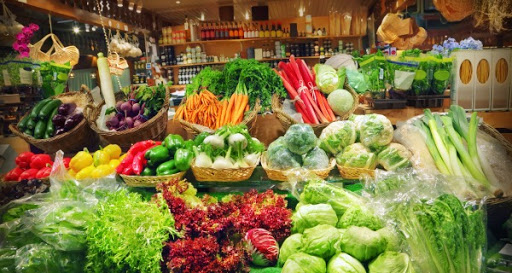The foodstuff business is generally considered to be profitable due to several factors that ensure consistent demand and opportunities for growth
Nigeria is renowned for its vast oil reserves, but few know about the “oil money” in the foodstuffs business. This post delves into the lucrative opportunities in Nigeria’s food industry, exploring how entrepreneurs can tap into this goldmine.

The Food Industry: A Brief Overview
Nigeria’s food industry is a significant contributor to the country’s GDP, with a growing demand for food products. The industry’s potential is vast, with opportunities in production, processing, and distribution.
The “Oil Money” in Foodstuffs
Just like the oil industry, the foodstuffs business has its own “oil money” i.e high-demand products that generate substantial revenue. These include:
- Rice
- Sugar
- Flour
- Vegetable oil
- Spices (e.g., pepper, ginger, garlic)
Why Foodstuffs?
- Essential commodities: Foodstuffs are essential to human survival, ensuring consistent demand.
- Growing population: Nigeria’s population is projected to reach 400 million by 2050, increasing food demand.
- Import substitution:
Nigeria relies heavily on food imports; local production can capitalize on this market. - Diversification:
The food industry offers a diversification opportunity for oil-dependent Nigeria.

Opportunities in the Foodstuffs Business
Rising Urban Population: As more Nigerians move to urban areas, the demand for processed, packaged, and ready-to-eat foods is increasing. Urban dwellers often have less time to cook traditional meals, leading to higher demand for convenience foods.
Growth of Supermarkets and Retail Chains: The expansion of supermarkets and retail chains in cities like Lagos, Abuja, and Port Harcourt has created more opportunities for the sale of packaged and processed food products.
Opportunities for Import Substitution: Nigeria imports a significant portion of its food, especially staples like rice, wheat, and sugar. The government has been encouraging local production to reduce this dependence, creating opportunities for entrepreneurs in agriculture and food processing.
Increased Investment in Agriculture: There has been a growing investment in local agriculture, driven by government initiatives and private sector involvement. This investment supports the foodstuff business by providing raw materials for processing and distribution.
Success Stories
- Dangote Sugar Refinery
- Flour Mills of Nigeria
- Nestle Nigeria
Challenges and Solutions
- Infrastructure:
Invest in storage facilities, transportation, and logistics to overcome infrastructure challenges. - Financing:
Explore funding options, such as loans or grants, to support business growth. - Quality control:
Implement quality control measures to ensure high-quality products.
Conclusion
The foodstuffs business in Nigeria is a lucrative opportunity waiting to be tapped. Entrepreneurs can capitalize on this market by understanding the industry’s dynamics, identifying high-demand products, and leveraging opportunities in production, processing, and distribution. With the right strategies and support, Nigeria’s food industry can become a significant contributor to the country’s economy, rivaling the oil sector.
See you in the next post!!